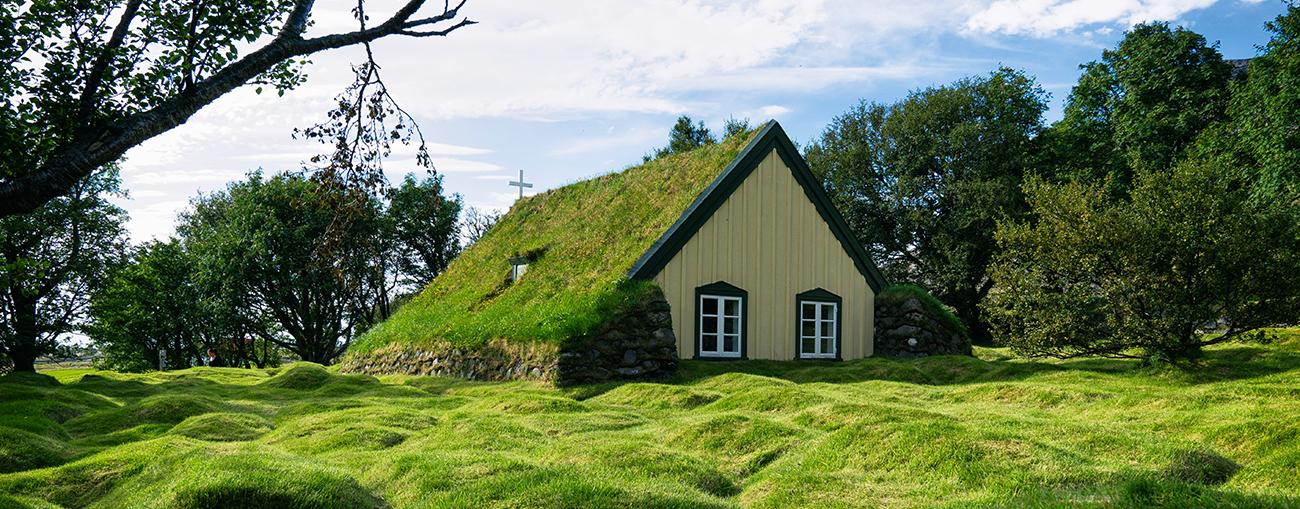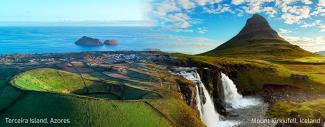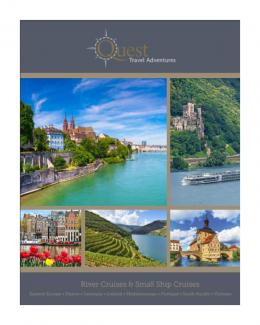10 Icelandic Traditions That Still Thrive Today

When visiting Iceland, it doesn't take long to realize that this windswept island in the North Atlantic isn't just about waterfalls, volcanoes, and otherworldly landscapes. It's a country rich in tradition, with cultural roots that trace back to the Viking Age. Despite being one of the most modern and progressive societies in the world, Icelanders still hold fast to many old customs, some charming, some quirky, and some delightfully strange.
If you're planning a trip to Iceland, be sure to experience these living traditions that locals continue to celebrate and pass down through generations.
1. A December Like No Other
Christmastime in Iceland is filled with unique traditions that you won't find anywhere else. Instead of one Santa Claus, Iceland has 13 mischievous Yule Lads, each arriving on a different night in December. Children leave shoes in windows, hoping for treats or fearing a rotten potato! Add in the spooky Christmas Cat who eats lazy children and the tradition of eating fermented skate (yes, rotten fish!) on December 23, and you've got an unforgettable holiday season. Festivities culminate on December 24, when Icelanders exchange gifts and celebrate with their families.
2. Fireworks & Þrettándinn: Iceland's Explosive Holiday Finale
If you're in Iceland around New Year's Eve, prepare for an epic display of light and sound. The only legal time to buy and launch fireworks is between Christmas and January 6, and Icelanders make the most of it. Thousands of fireworks light up the skies for days — especially during the New Year countdown.
The grand finale takes place on January 6, a night known as Þrettándinn, or the "Thirteenth Night After Christmas." It marks the official end of the holiday season and is celebrated with bonfires, dancing, and even more fireworks. Some revelers dress as elves, trolls, or hidden folk, bringing Icelandic folklore to life in a magical sendoff to the season.
3. Þorrablót: A Feast of the Fearless
Come late January and February, Icelanders brave the dark days of winter by gathering for Þorrablót — a traditional mid-winter festival that's all about heritage and, let's say, strong stomachs. Expect a buffet of traditional Icelandic delicacies, including rams' testicles, pickled blubber, boiled sheep's head, and fermented shark. It's a celebration of the old ways, often accompanied by singing, dancing, and Viking-style toasts.
4. Naming Ceremonies (And No Family Surnames!)
In Iceland, a baby's name is often not announced until months after birth, when families host a naming ceremony, sometimes accompanied by a traditional kransakaka, a layered almond ring cake also commonly seen at weddings. And Iceland doesn't use family surnames. Instead, children take a patronymic (or sometimes matronymic) last name. For example, Jón's daughter becomes Jónsdóttir, and his son becomes Jónsson. It's a naming system that truly personalizes identity.
5. Beer Day – March 1
Yes, Iceland has an official Beer Day. Until 1989, beer was banned in the country, but that all changed on March 1, and now the day is celebrated with pub crawls, parties, and the launch of limited-edition brews by Icelandic craft beer companies. If you're a fan of beer and history, there's no better day to raise a glass in Reykjavík.
6. Bolludagur – Bun Day (and Its Tasty Trio of Traditions)
In Iceland, the days leading up to Lent are a delicious, quirky trilogy — and it all starts with Bolludagur, or Bun Day, celebrated on the Monday before Ash Wednesday. Inspired by Scandinavian and Catholic traditions but given an Icelandic twist, it's the local version of Fat Tuesday — but spread across three unique days.
Bolludagur kicks things off with a sugar-fueled frenzy: bakeries fill their windows with towers of cream-filled buns, called bollur, topped with chocolate glaze and sometimes jam. Children take part in the fun by crafting colorful paddles (bolluvöndur) at school and waking their parents up with a playful "spanking," chanting, "Bolla! Bolla! Bolla!" In return? You guessed it, they get buns.
The next day, Sprengidagur (literally "Bursting Day"). The goal here is to eat until you're full to bursting, typically with a large plate of salted meat and split pea soup, a hearty, traditional dish designed to sustain people during Lent's fasting days. It's simple comfort food with deep cultural roots, and it remains a popular meal in homes and restaurants alike.
Finally, on Ash Wednesday, Icelanders trade solemn ashes for silliness. Known as Öskudagur, it's a bit like Halloween. Children dress in costumes, go door-to-door or visit local shops, and sing songs in exchange for candy. Historically, the day involved pinning little bags of ash (or notes) on people's backs as a prank, but today, it's all about costumes and singing.
7. Rímur – Rhymes of the Past
Ancient Icelandic rímur, or rhyming epic poems, were once passed down orally and performed around the fire on cold winter nights. Today, there's a growing interest in reviving these lyrical traditions, and you might catch a performance at a local cultural festival or community event.
8. Réttir – The Great Sheep Roundup
In September, after a summer of free grazing in the wild highlands, thousands of sheep are herded back to their farms in an annual event called Réttir. Locals, as well as visitors, help on horseback and foot, guiding flocks to circular pens where each farm reclaims its animals. It's a festive rural tradition often followed by singing, dancing, and shared meals.
9. Turf Houses: Living History
Scattered across the countryside, turf houses are a visual reminder of how Icelanders once lived in harmony with nature. Many of these houses, built into the earth with grass-covered roofs, serve as museums or even animal shelters. Visiting them offers a glimpse into the resourceful spirit of earlier generations who endured the harsh elements in cozy, eco-friendly homes.
10. The Icelandic Language: A Living Link to the Past
Perhaps Iceland's most treasured tradition is its language. Icelandic is one of the oldest and most unchanged languages in the world, tracing back directly to Old Norse. Icelanders take immense pride in preserving it, resisting foreign influence, inventing new Icelandic words for modern technologies, and keeping it at the center of education and culture. It's not just how they speak. It's a powerful connection to their Viking ancestors and literary heritage.
Whether you're watching fireworks light up a snowy sky or tasting a centuries-old delicacy, Iceland's living traditions add a layer of depth and authenticity to your travel experience. Immerse yourself in the culture that makes this island so unique on a custom Quest Travel Adventures Itinerary. Our most popular Iceland trips include Complete Iceland, Iceland West Coast Self-Drive Tour, and Iceland Winter City Stay.











